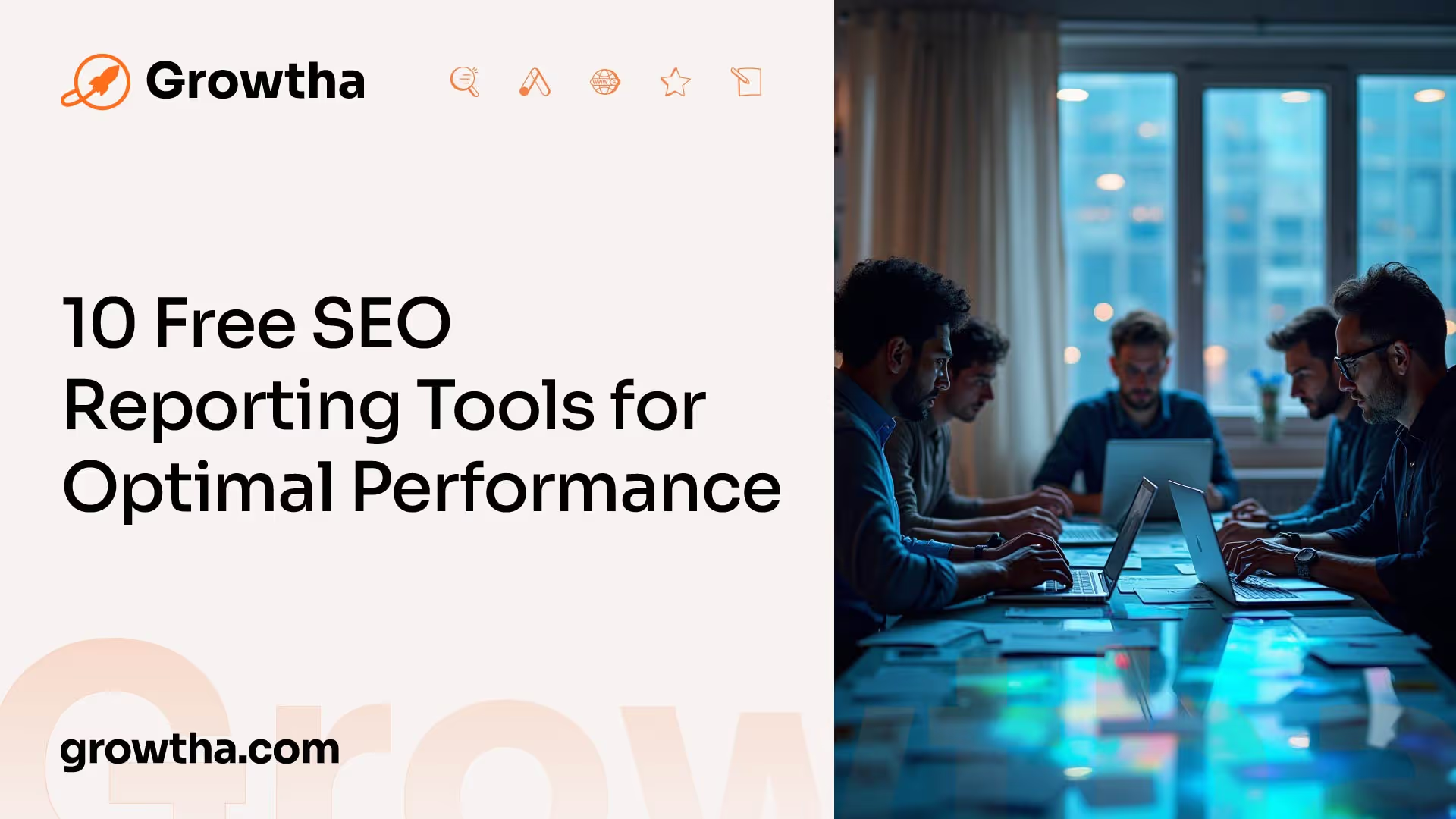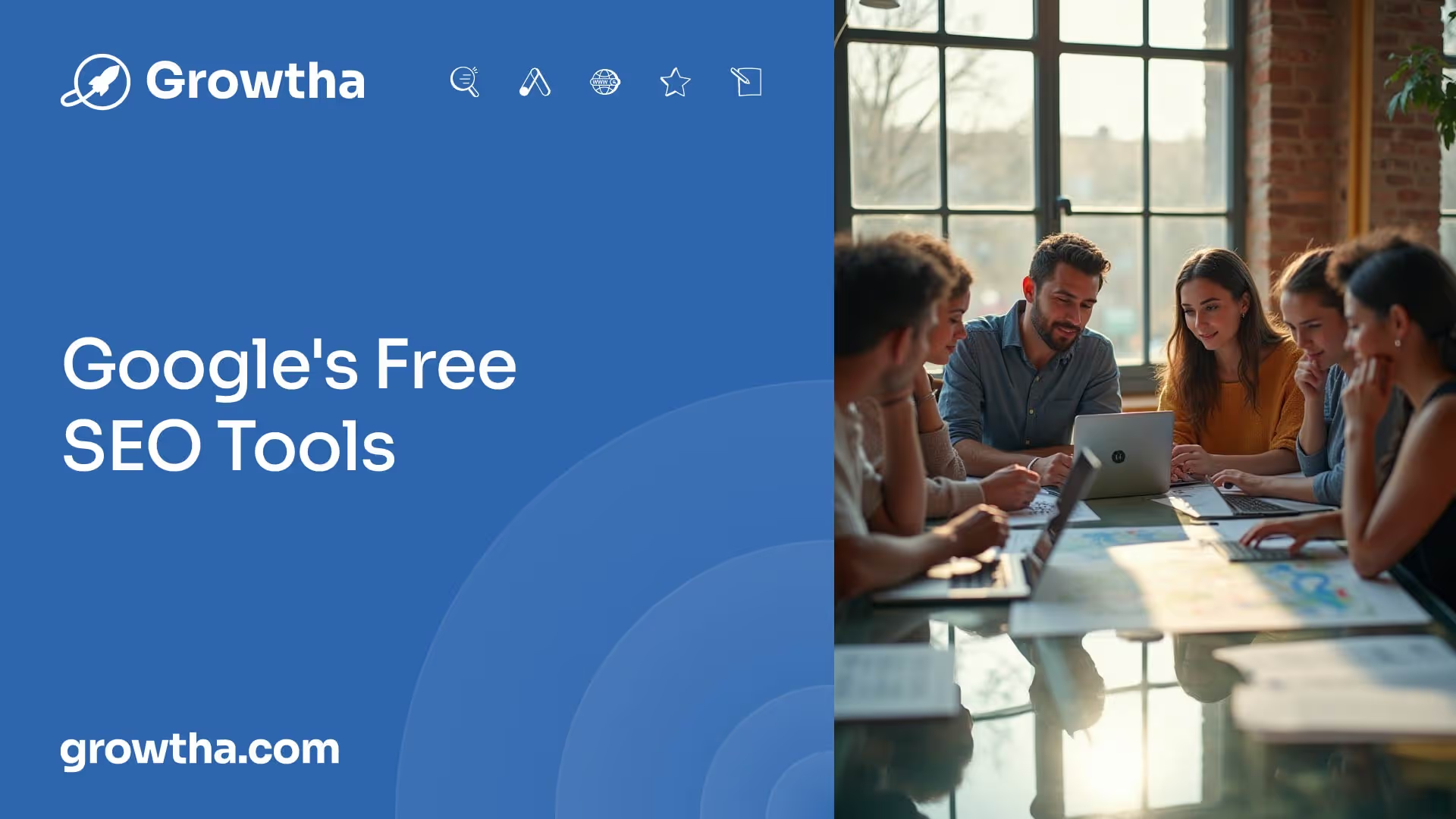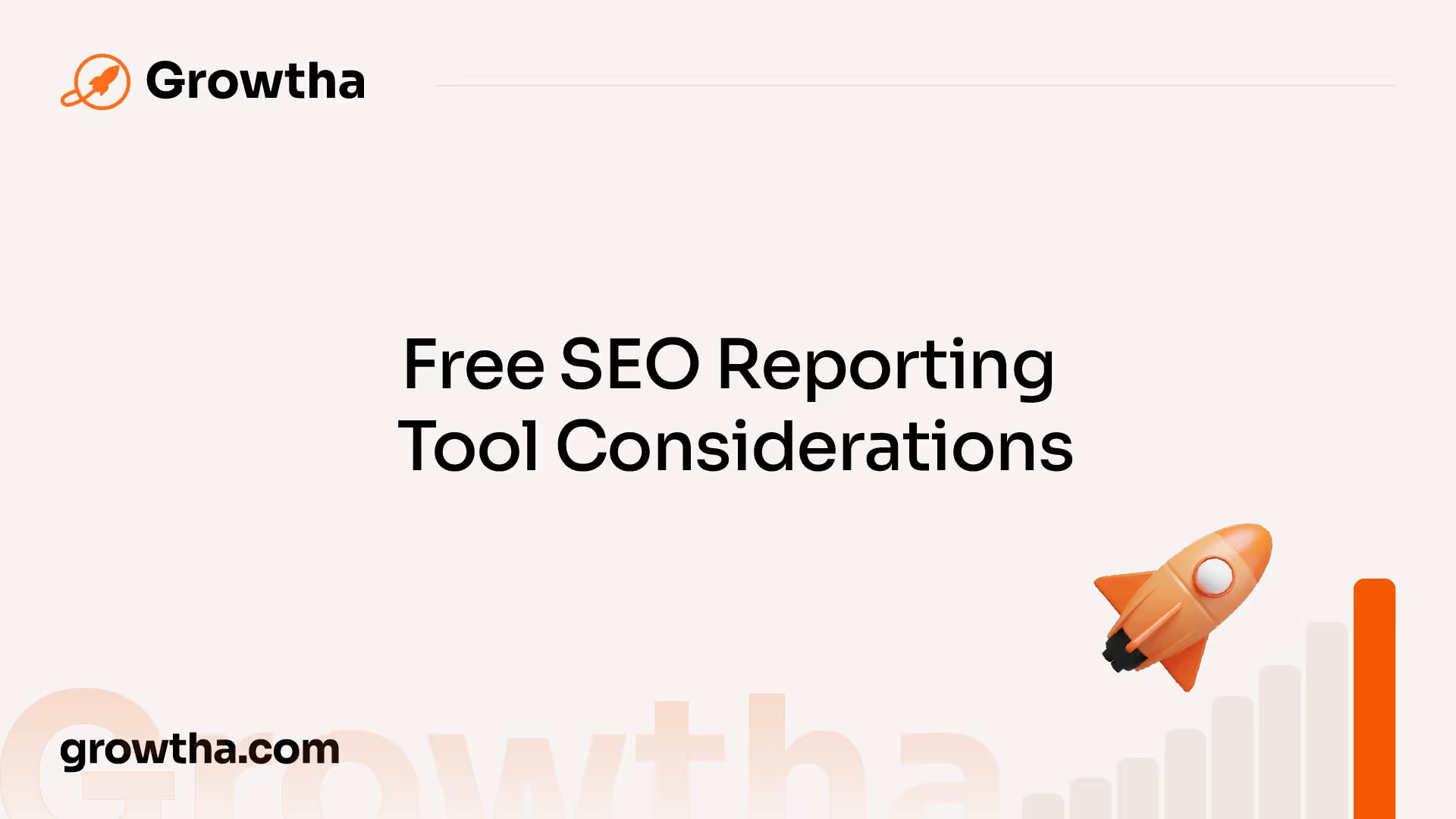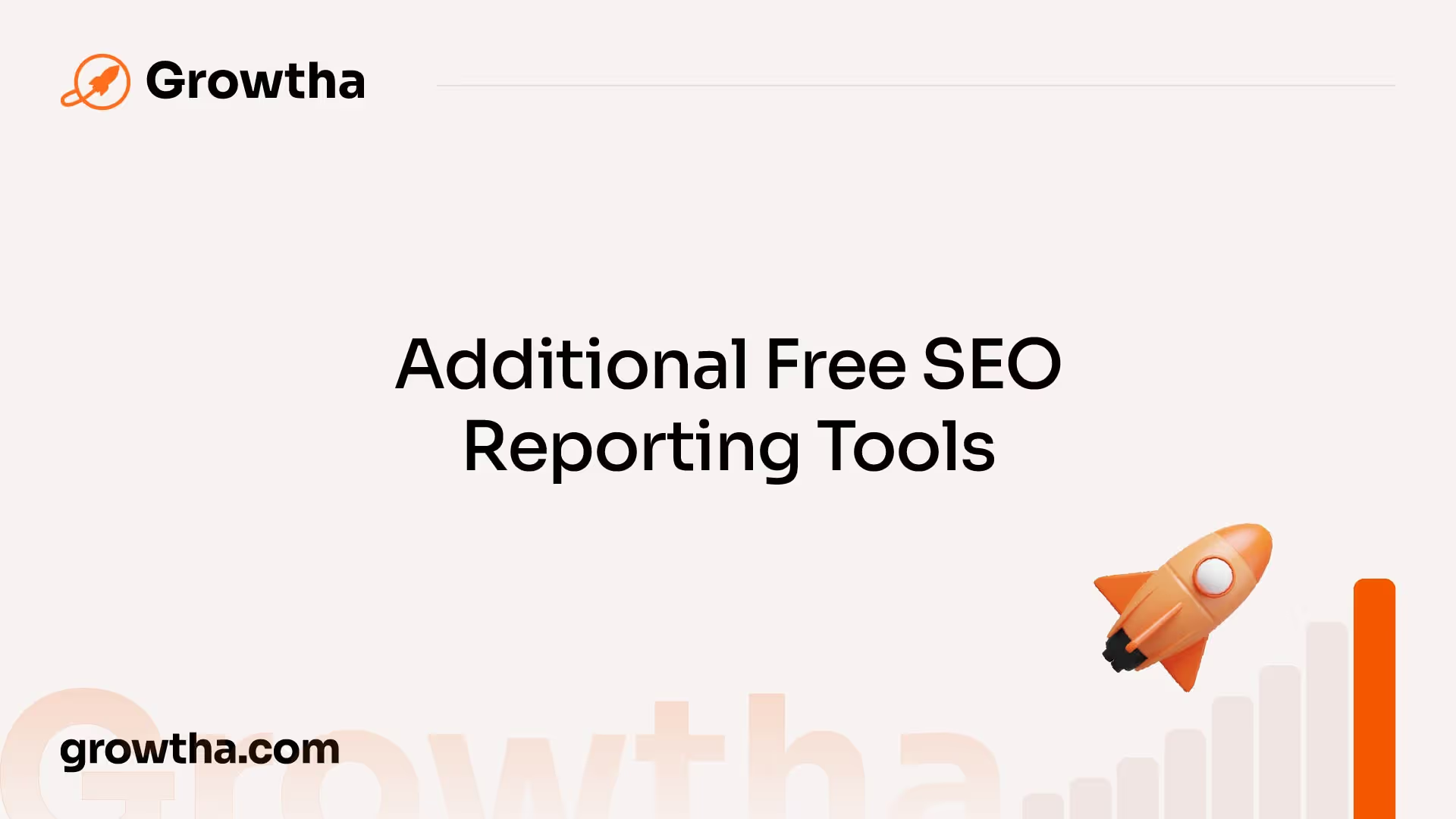10 Free SEO Reporting Tools for Optimal Performance
These tools provide valuable insights and data that help businesses improve their search engine rankings and drive organic traffic.


10 Free SEO Reporting Tools for Optimal Performance
Free SEO Reporting Tools Overview

In the world of SEO, reporting tools play a crucial role in monitoring and optimizing the performance of websites. These tools provide valuable insights and data that help businesses improve their search engine rankings and drive organic traffic. In this section, we will explore the importance of SEO reporting and discuss the pros and cons of using free tools for this purpose.
Importance of SEO Reporting
SEO reporting is essential for tracking the progress of your website's optimization efforts. It allows you to measure key metrics, identify areas for improvement, and make data-driven decisions to enhance your online presence. Without proper reporting, it can be challenging to gauge the effectiveness of your SEO strategies and understand the impact of your optimization efforts.
By utilizing SEO reporting tools, you gain access to important data such as keyword rankings, organic traffic trends, backlink profiles, and more. These insights enable you to identify which aspects of your SEO campaign are working well and which areas need attention. With this information, you can refine your strategies, optimize your website's performance, and stay ahead of your competitors.
Pros and Cons of Free Tools
Free SEO reporting tools offer a range of benefits to businesses with budget constraints. They provide access to valuable data and analysis without requiring any financial investment. However, it's important to consider both the advantages and limitations of using free tools.
Pros of Free Tools
- Cost-effective: Free tools allow businesses to access essential SEO reporting functionalities without incurring additional expenses.
- Data insights: These tools provide valuable data on keyword rankings, backlinks, site performance, and other metrics, helping businesses monitor their SEO progress.
- Ease of use: Free tools often have user-friendly interfaces, making them accessible to users with varying levels of technical expertise.
- Learning opportunities: Using free tools can help businesses gain a better understanding of SEO concepts and practices, contributing to their overall knowledge and skill development.
Cons of Free Tools
- Limited features: Free tools generally offer a limited set of features compared to their paid counterparts. Advanced functionalities may be restricted or unavailable.
- Data limitations: Free tools may impose restrictions on the amount of data that can be analyzed or limit the frequency of data updates.
- Data security concerns: Some free tools may collect and monetize user data, raising potential privacy and security issues. It's important to choose reputable tools and review their privacy policies.
- Monetization and upselling: Freemium tools may have a free version with limited features, aiming to encourage users to upgrade to a paid version for more advanced functionalities.
When considering free SEO reporting tools, it's important to evaluate your specific needs and prioritize the functionalities that are most important to your business. Additionally, consider the reputation and credibility of the tool provider, as well as any potential data security implications. By understanding the pros and cons of free tools, you can make informed decisions and leverage these tools effectively in your SEO reporting efforts.
Google's Free SEO Tools

When it comes to free SEO reporting tools, Google offers a range of valuable resources that can provide insights and data to optimize your website's performance. Two prominent tools from Google are Google Search Console and Google Looker Studio (formerly known as Google Data Studio).
Google Search Console
Google Search Console is a widely used tool that allows website owners to track and monitor important SEO metrics from Google Search. It provides valuable data on clicks, impressions, click-through rate, and average position, offering a comprehensive overview of your website's performance in search results [1]. This tool is a go-to resource for SEO reporting and helps website owners understand how their website is performing on Google's search engine.
By analyzing the data provided by Google Search Console, you can gain insights into the keywords that are driving traffic to your website, identify areas for improvement, and make informed decisions to optimize your SEO strategy. It allows you to monitor your website's health, identify any crawl errors, and submit sitemaps to ensure that your website is being properly indexed by Google.
Google Looker Studio
Another useful tool from Google is Google Looker Studio. Formerly known as Google Data Studio, this free tool allows users to create visually appealing and shareable dashboards to visualize data from various sources. With Google Looker Studio, you can connect to different data sources, including Google Analytics and Google Search Console, to create customized overviews of search performance tailored to your website [1].
By utilizing the features of Google Looker Studio, you can create interactive reports and visualizations that showcase the key SEO metrics you want to track. This tool allows you to present data in an organized and visually appealing manner, making it easier to understand and share with stakeholders.
These Google tools, Google Search Console and Google Looker Studio, provide website owners with valuable insights into their website's performance in search results. By leveraging the data and features offered by these tools, you can make data-driven decisions to optimize your website's SEO and drive better organic search performance.
Free SEO Analysis Tools

When it comes to optimizing your website for search engines, utilizing free SEO analysis tools can provide valuable insights and help improve your overall SEO strategy. Two popular free tools for SEO analysis are Screaming Frog and Ahrefs Webmaster Tools.
Screaming Frog
Screaming Frog is a website crawler that offers a free version for auditing up to 500 URLs, making it ideal for smaller websites. This tool provides detailed technical information about your website, such as redirects, canonicals, pagination, hreflang, and structured data. These insights can be summarized in SEO reports, allowing you to identify and address any issues that may be affecting your website's performance [1].
By crawling your website, Screaming Frog reveals key information that can help improve your site's visibility in search engine results. The tool provides a comprehensive overview of your website's health and technical structure, enabling you to make data-driven decisions for optimization.
Ahrefs Webmaster Tools
Ahrefs, a widely recognized SEO platform, offers a variety of free SEO tools, including Ahrefs Webmaster Tools (AWT) for SEO reporting. AWT allows users to audit their sites, monitor technical performance, and track their website's health effortlessly. The tool provides insights into important SEO metrics such as backlinks, organic search traffic, and referring domains.
With AWT, you can gain a deeper understanding of how search engines view your website and identify areas for improvement. The tool also helps you track your website's performance over time, allowing you to monitor the impact of your SEO efforts.
Both Screaming Frog and Ahrefs Webmaster Tools serve as valuable resources for conducting SEO analysis and generating reports. By leveraging the insights provided by these tools, you can make informed decisions to optimize your website and improve its visibility in search engine rankings.
Remember, while free SEO tools can be incredibly useful, they may have limitations compared to their paid counterparts. Nevertheless, they still offer valuable information and can be a great starting point for small businesses or individuals with budget constraints. It's important to exercise caution when choosing which tools to use, ensuring data security and considering any potential monetization of user data [2].
Free SEO Reporting Tool Considerations

When it comes to utilizing free SEO reporting tools, it's important to consider both their limitations and how to make the most of them. While these tools can provide valuable insights and data, they may have certain restrictions that should be taken into account.
Limitations of Free Tools
Free SEO reporting tools often come with limitations in terms of functionality and access to advanced features. These limitations can include:
- Limited Data: Free tools may provide access to only a subset of data, limiting the depth of analysis. This can make it challenging to get a comprehensive understanding of your website's performance and identify potential areas for improvement.
- Restricted Features: Advanced features that are available in premium versions of the tools may be locked or unavailable in the free versions. These features can provide more in-depth analysis, competitor research, and keyword insights, which are crucial for effective SEO strategies.
- Data Security: When using free tools, it's important to consider the security of your data. Some free tools may collect and monetize user data, which could potentially compromise the privacy and security of your SEO efforts.
- Limited Customer Support: Free tools often provide limited or no customer support compared to their paid counterparts. If you encounter any issues or have questions, the availability of assistance may be limited, requiring you to rely on online resources or community forums for guidance.
Making the Most of Free Tools
While free SEO reporting tools may have limitations, they can still be highly beneficial when used strategically. Here are some tips to make the most of these tools:
- Set Clear Objectives: Define your SEO goals and objectives before using free tools. This will help you focus on the specific metrics and insights that align with your goals, making your analysis more targeted and effective.
- Combine Tools: Utilize multiple free tools in combination to compensate for the limitations of each individual tool. By cross-referencing data and insights from different sources, you can gain a more comprehensive view of your website's performance.
- Leverage External Resources: Expand your knowledge and understanding of SEO by leveraging external resources such as blogs, forums, and tutorials. These resources can offer additional insights and guidance on how to interpret and utilize the data provided by free tools effectively.
- Stay Informed: Keep up-to-date with industry trends and changes in SEO practices. This will help you adapt your strategies and make the most of the free tools available, even if they may lack certain advanced functionalities.
By understanding the limitations of free SEO reporting tools and adopting a strategic approach, you can still derive valuable insights and optimize your website's performance. Remember to use these tools as part of a broader SEO strategy and leverage external resources to enhance your knowledge and expertise in the field.
Additional Free SEO Reporting Tools

In addition to Google's free SEO tools and other popular analysis tools, there are a couple of noteworthy free SEO reporting tools that can assist in optimizing your website's performance and enhancing your SEO strategies. Let's explore Wix SEO and StoryChief SEO Tools.
Wix SEO
Wix, a leading website builder, offers a range of SEO tools to help website owners improve their search engine visibility and performance. These tools are not a necessity for performing SEO tasks, but they can save time, make sense of large datasets, and provide additional insights through third-party data [2].
With Wix SEO, you can access features such as keyword research, meta tag optimization, and site health checks. The platform provides recommendations and suggestions to enhance your website's SEO elements, making it easier to optimize your content and improve your search rankings.
By utilizing Wix SEO, you can gain insights into your website's performance, identify areas for improvement, and monitor the impact of your SEO efforts. It's important to note that while Wix SEO offers valuable free features, there are also premium options available that provide more advanced functionalities.
StoryChief SEO Tools
StoryChief is an all-in-one content marketing platform that integrates with Google Search Console, offering advanced SEO analytics to optimize content for better search rankings. By leveraging this tool, users gain access to quick wins and actionable insights to improve their SEO performance [3].
The SEO reporting tools provided by StoryChief allow users to monitor their website's performance, track keyword rankings, and analyze organic search traffic. These insights help content creators and marketers refine their strategies, identify areas of improvement, and make data-driven decisions to enhance their SEO efforts.
By integrating with Google Search Console, StoryChief enables users to gather valuable data, such as impressions, click-through rates, and average position in search results. This information allows for a comprehensive understanding of how your website is performing in the search landscape.
Utilizing these additional free SEO reporting tools, such as Wix SEO and StoryChief SEO Tools, can provide valuable insights to optimize your website's performance, improve search rankings, and enhance your overall SEO strategy. Remember to make the most of these tools by regularly analyzing the data, implementing recommended changes, and continuously monitoring and adapting your SEO efforts for optimal results.
Leveraging Free Tools for SEO Success
When it comes to SEO reporting, leveraging free tools can be a cost-effective way to monitor and optimize your website's performance. By following best practices for free SEO reporting and integrating these tools into your overall strategy, you can achieve SEO success without breaking the bank.
Best Practices for Free SEO Reporting
To make the most of free SEO reporting tools, it's important to follow these best practices:
- Define Key Metrics: Determine the key performance indicators (KPIs) that align with your SEO goals. Whether it's organic traffic, keyword rankings, or backlinks, focus on the metrics that matter most to your website's success.
- Set up Regular Reporting: Establish a regular reporting schedule to monitor your website's performance over time. Weekly or monthly reports can help you track progress, identify trends, and make data-driven decisions.
- Track Changes: Keep a record of any changes you make to your website or SEO strategy. This will help you understand the impact of these changes on your performance and make adjustments accordingly.
- Analyze and Interpret Data: Dive deep into the data provided by the free SEO reporting tools. Look for patterns, correlations, and areas for improvement. Use this information to refine your SEO strategy and identify opportunities for growth.
- Stay Updated: Stay informed about the latest SEO trends and algorithm updates. Free SEO reporting tools often provide valuable insights and recommendations based on industry best practices. Keeping up-to-date with these recommendations can help you stay ahead of the competition.
Integrating Free Tools into Your Strategy
To seamlessly integrate free SEO reporting tools into your strategy, consider the following:
- Combine Multiple Tools: Different tools offer unique features and insights. Consider using a combination of free tools to get a comprehensive view of your website's performance. For example, you can use Google Search Console to monitor search traffic, while tools like Screaming Frog or Ahrefs Webmaster Tools can provide in-depth analysis of your website's technical aspects and backlink profile.
- Leverage Data Visualization: Many free SEO reporting tools offer data visualization features, such as graphs and charts, to help you better understand and communicate your website's performance. Utilize these visualizations to present data in a clear and concise manner, making it easier to identify trends and communicate insights.
- Regularly Monitor and Adjust: SEO is an ongoing process, and it's important to regularly monitor your website's performance using the free tools at your disposal. Continuously analyze the data, identify areas for improvement, and make necessary adjustments to your SEO strategy.
- Consider Limitations: Keep in mind that free SEO reporting tools may have limitations in terms of data depth or access to advanced features. While these tools can provide valuable insights, it's important to understand their limitations and supplement them with additional research and analysis when needed.
By following best practices and integrating free SEO reporting tools into your strategy, you can gain valuable insights into your website's performance and make informed decisions to improve your SEO efforts. Remember to stay up-to-date with industry trends, experiment with different tools, and adapt your strategy based on the data provided by these free resources.
References
[1]: https://ahrefs.com/blog/seo-reporting-tools/
[2]: https://www.wix.com/seo/learn/resource/do-you-need-tools-to-do-seo







